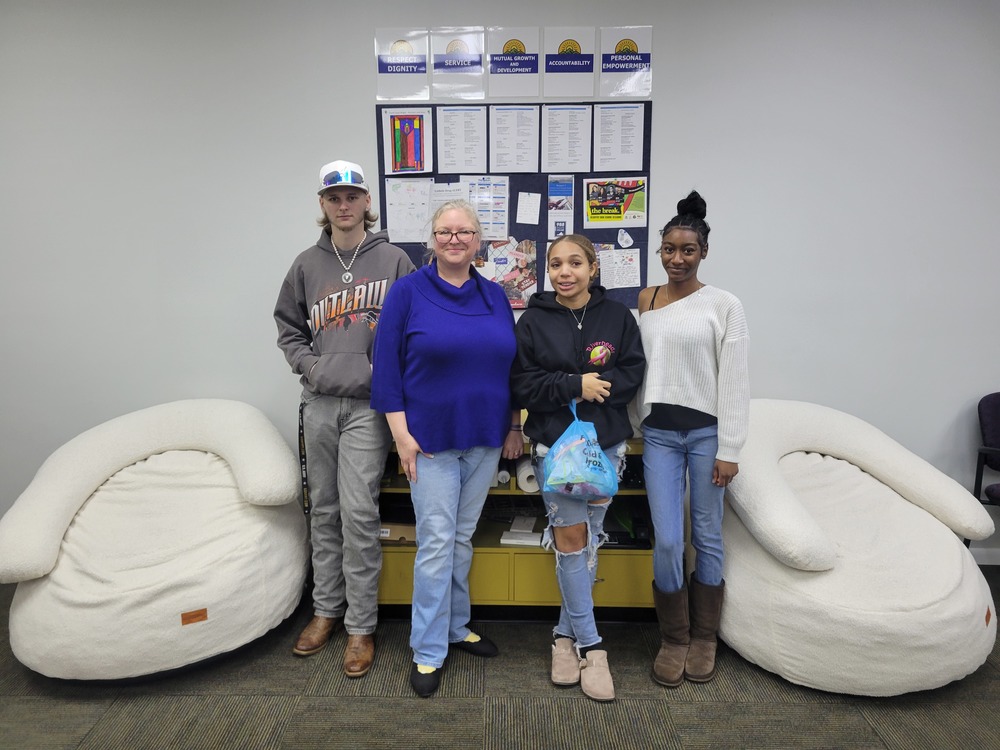“Romeo, Romeo! Wherefore art thou Romeo?” Wait. What? What is she even saying? That was my students at River Ridge Learning Center on October 29 as we spent the morning at the American Shakespeare Center for a matinee performance of Romeo and Juliet. I brought my English students to Staunton to experience Shakespeare as it was meant to be enjoyed, live on stage. While Romeo and Juliet isn’t part of our English 10 or 11 curriculum, the trip connected directly to the Virginia Standards of Learning by challenging students to interpret complex language, analyze character development and themes, and evaluate how performance choices shape meaning.
At first, students admitted it was difficult to keep up with the language. But they quickly leaned on context clues and inference skills to follow the story. By the end, they were fully engaged; analyzing tone, staging, and audience interaction, and asking thoughtful questions about costume and setting choices, especially since this production was creatively set in the early 2000s.
For me, the highlight of the day was watching students transform from skeptical and uncertain to fully invested in the performance. When I first suggested the trip, many thought they’d be bored, that the audience would be “weird,” or that Shakespeare would be impossible to understand. But the fast-paced action and modern clothes captured their attention. By the final scene, they were animatedly debating character choices, analyzing motives, and even arguing over who was really to blame for the tragic ending. Witnessing that transformation was unforgettable.
This trip also reflected River Ridge’s approach to recovery and holistic learning. Being present for a live performance requires focus, empathy, and mindfulness; all skills we work on every day. Students practiced making emotional and intellectual connections, while shared experiences like this strengthen relationships, build a sense of belonging, and remind us that learning and recovery both thrive through engagement, reflection, and connection to the wider world.
For me, the moments that made me think, “This is why I do what I do,” came after the play. Students shared their reactions with Mrs. Christian, asked insightful questions, and offered thoughtful opinions about the performance. Seeing them so engaged, analyzing, challenging, and expressing themselves with confidence was incredibly rewarding.
Experiences like this also build community in powerful ways. Among students, field trips create shared memories, encourage collaboration, empathy, and mutual respect. Between staff and students, trips like this break down barriers. Teachers and students learn alongside each other, laugh together, and engage in authentic conversations. And with the broader Staunton community, attending a local performance highlights the importance of supporting regional arts while showing students that they are part of something larger than our school. These moments help students see themselves as active participants in both their learning community and the world around them.
At River Ridge, experiences like this are more than just field trips, they are opportunities to connect classroom learning with life beyond our walls. Engaging with live theater builds confidence, curiosity, and a deeper appreciation for language and storytelling. And shared experiences like this strengthen the sense of community that is at the heart of everything we do.

